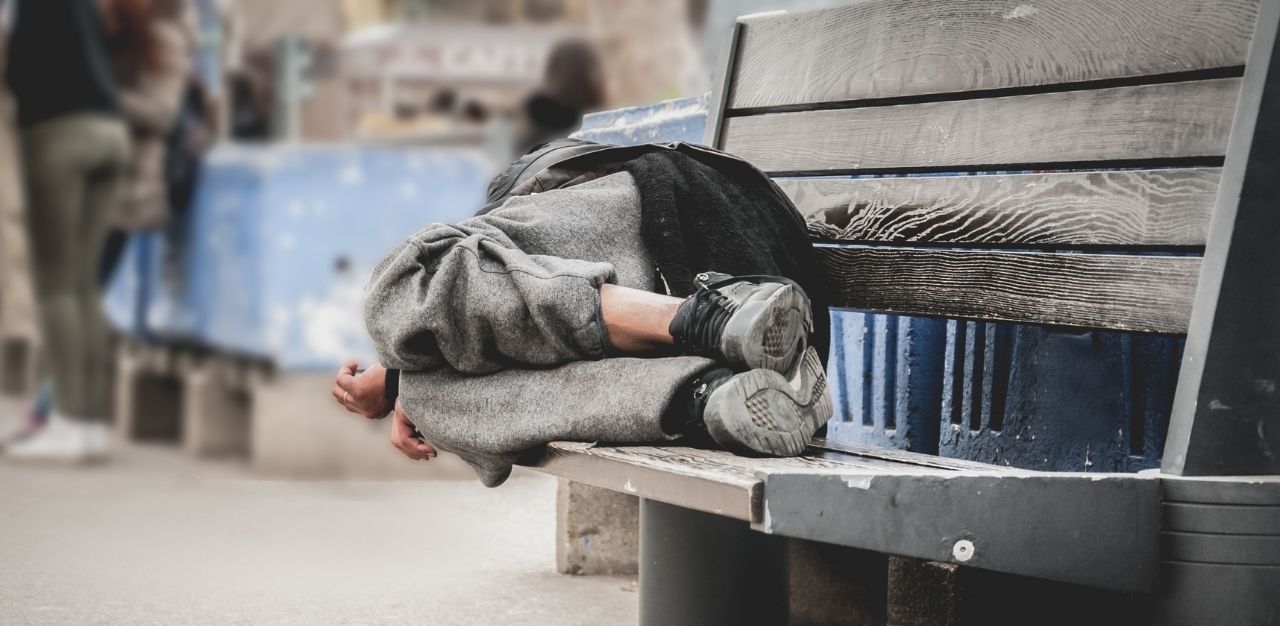After jail time, most offenders go on to rehabilitate and reintegrate themselves into their communities. But according to the Singapore Prison Service, about one in five of these offenders (as of 2020) find themselves back behind bars within two years of their release. Why does this happen? And how can it be prevented? In the first part of the series, TheHomeGround Asia explored how time behind bars impacted an offender’s journey to recovery. In this second segment, we find out how the year after being released from prison has helped or hindered the rehabilitation and reintegration efforts of former offenders.
Leaving the prison cell and facing the outside world was a huge hurdle for an ex-offender who wishes to be known as June. In fact, June’s perception of how society viewed her was a reason why she continued to succumb to taking drugs, which led to her being incarcerated four times on drug consumption charges over 20 years.
“I always thought society didn’t like me, especially my family. That’s why I take drugs… When I’m high, I feel like the world is mine. I make my own world,” she shares.
Stigma continues to impede former offenders like June from their recovery and can be psychologically damaging too.
Esther Chin, a case worker with HCSA Community Services’ halfway house, explains, “Oftentimes, when they go through stigma and people think that they won’t change, it increases their psychological distress. So, when a person is stressed and going through depressive moments, they find that they are isolated again, just because of the things they have done. It’ll… not be helpful for the recovery process.”
Meeting counsellors from non-profit New Life Stories instilled June with a determination to recover, enabling her to come to terms with the stigma: “When I am outside, there’s a lot of stigma towards me, but [the counsellors] always say, ‘Don’t care how they want to talk, [what’s] important is yourself.’”
In the past, she says, “I got angry when people stigmatised me as a drug addict.” But with repeated reminders from counsellors, she was able to tell herself that “what’s important is the people that care and know me.” And now when people talk about her, she takes it as a “challenge” to be better.
Staying away from negative influences
While being shunned by society is a hurdle, falling in with the wrong crowd has its own set of problems. Former gang members and drug offenders say they might find it difficult to distance themselves from friends and old acquaintances, who might still be engaging in nefarious activities.
During time in prison, former gang member Yeo Yun Luo was a harbinger of havoc, inciting fights and riots, which landed him in the maximum security wing of the Reformative Training Centre (RTC). While serving his time, Mr Yeo was visited by a pastor from Victory Family Church. Over time and with regular visits from the religious leader, he found faith and decided to change his ways, taking that first step toward reformation.

Upon release, Mr Yeo moved away from his old neighbourhood, where his former gang members operated, to live with his grandmother. The separation from his past life helped his recovery process: “I didn’t know anybody [in the new estate],” he shares. “That’s one of the reasons that helped me change into a better person… it’s a new environment, and I don’t mix with [old company]. In one or two years, it became a habit. I realised that I didn’t need these people.”
In instances where physical distance is impossible, other ex-offenders like Rafiq (not his real name) employ the strategy of walking away. In the interim, he sought advice from peers who were also on the path to recovery, joining the Men’s Support Group run by the Industrial and Services Co-Operative Society (ISCOS), an organisation that extends friendship to ex-offenders and their families to help them lead meaningful and productive lives.
“It was great to be able to share freely about my struggles, seek advice on communication and coping strategies, and encourage each other to continue to maintain the changes we want to make and not give up,” Rafiq says.
Similarly, June stayed away from people and situations that might prevent her from kicking her drug addiction. After her release, she had to report for regular urine tests, where she would often meet others like her who were in different stages of recovery. In these instances, June would politely inform them that her son was waiting for her at home to avoid prolonged interactions: “Just say ‘hi, bye’, like that.”
But while determination and willpower make it possible to keep potential trouble at bay, family is a more complex matter.
Family acceptance or rejection

Soraya Abdul Rahim, a counsellor in the Family Care & Therapy Department of New Life Stories, says that the family unit is an integral part of rehabilitation and reintegration. Specifically, she addresses how family might sometimes be detrimental to an ex-offender’s recovery.
“Some are supportive but you might also have those who are negative influences,” she explains. “For example, you have families who have engaged in previous offending behaviour and are still engaged in it, so they might encourage [the ex-offender] to come back to it, and do these things together.”
Otherwise, family members might reject the offenders.
In the worst-case scenario, Ms Soraya has witnessed instances where relatives actively try to sabotage the offenders, as they no longer want to interact with them.
“It’s sad because they have no faith in the person’s ability to turn over a new life,” she says.
On the flip side, family can also serve as a pillar of strength for former offenders, motivating them to rehabilitate and reintegrate back into society.
Such was the case for June, as well as Van, who served five years in prison for assisting with her husband’s drug trafficking operations. Both mothers cite their children as being the key reasons they have kept on the right side of the law, so far.
June says, “The one thing [that keeps me staying clean] is every day I get to see my son in front of me. I get to see him growing up. Then I tell myself that I’m a mother.”
Likewise, Van emphasises, “My thinking is my kids and my family, that’s all. The first thing is my children… [they] come first.”
Now full-time, stay-at-home parents, they spend their days caring for their kids and catching up on the family time that they lost while in prison.
Housing and employment concerns

Besides family and social influences, practical circumstances may also hinder an individual’s rehabilitation. HCSA case worker Ms Chin cites two common concerns: housing and employment.
She uses Maslow’s hierarchy of needs to explain this.
“Basic accommodation is the most needed,” she says. “When there’s nothing to shelter them, it’s like they lose their identities in life.”
This was demonstrated in Rafiq’s life, when he found himself homeless after repeated incarcerations: “I was again on drugs, as I was homeless and had no direction in life.”
The second key concern raised by Ms Chin is that of employment after release, something that Kevin Anand, a former gang member, struggled with when he was first released in February last year.
Even though Mr Anand is out of prison, he is subject to a probation period of three years. During this time, he remains under police supervision and has to report to a police post every Tuesday. “Monday to Friday are normal working days for Singaporeans… so there were a lot of obstacles for me to actually find a job,” he shares.
He also describes the challenges he faced when searching for a job, especially during interviews: “Some of them [prospective employers] ask me, ‘Oh, are you still a gangster? Are you sure you’ve changed?’”
While he eventually managed to find people willing to hire him, it took multiple attempts before settling into a job.
This, Ms Chin highlights, is a problem that many ex-offenders encounter: “Some of them are not able to sustain the jobs they have. That means they work for maybe one or two days, or one week, then they start giving up.”
Ms Soraya concurs, “Jobs and finding the kind of employer that really understands [is] a struggle for quite a number of [ex-offenders].”
She explains that ex-offenders who are on probation often have a curfew to adhere to, which prevents them from working overtime, even if the job requires it: “Sometimes the boss needs them to work overtime, they can’t… Even if they explain, sometimes the bosses get very upset with them.”
Others, Ms Soraya says, may be single parents who need to care for their children, which adds another layer of stress and restrictions to their job search.

From the experiences and difficulties Mr Anand had to deal with when job hunting, he suggests that the prison service provides more support to inmates during incarceration and after their release.
“There are a lot of very good, talented people I’ve met inside prison, but their talent is going to waste because nobody recognises it, ” he rues. “They want us to work whatever job they give you, and so, there’s no progressiveness there.”
Instead, he thinks that it would be better if offenders go through certain interviews while incarcerated, to “see what they are talented in, and rehabilitate them from there.”
In Mr Anand’s case, he eventually found an opportunity to return to his old job at Wildlife Reserves Singapore, eight months after his release. Today, he works as a zookeeper handling primates, fulfilling a childhood dream of his.
Join the conversations on TheHomeGround Asia’s Facebook and Instagram, and get the latest updates via Telegram.














